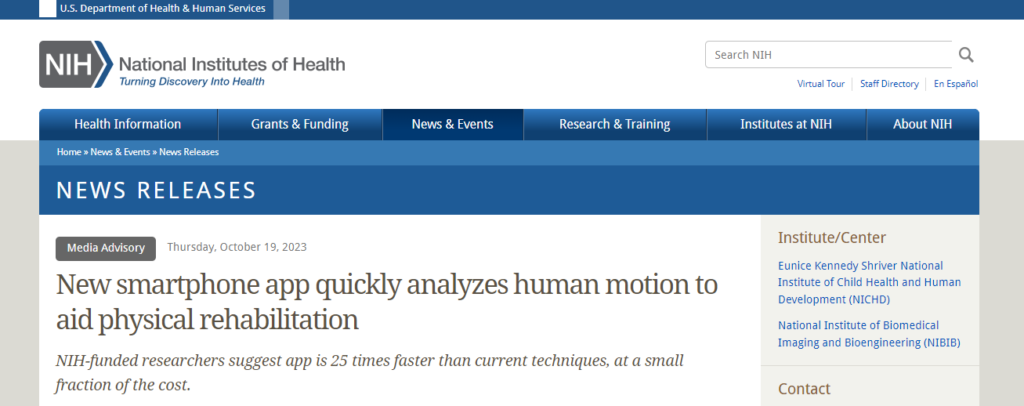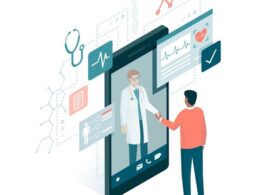the health strategist
institute for strategic health transformation
& digital technology
Joaquim Cardoso MSc.
Chief Research and Strategy Officer (CRSO),
Chief Editor and Senior Advisor
October 20, 2023
One page summary
What is the message?
A groundbreaking smartphone app, OpenCap, developed by a research team funded by the National Institutes of Health (NIH), has revolutionized human motion analysis for physical rehabilitation.
This app offers a cost-effective and significantly faster alternative to conventional motion analysis techniques, potentially transforming the way we evaluate and improve human locomotion.

Key Takeaways
Revolutionizing Human Motion Analysis:
OpenCap, a smartphone app funded by the NIH, has been developed to track and analyze human locomotion and other movements, making it a game-changer in the field of rehabilitation.
Cost-Efficient:
The app offers a substantial cost advantage, requiring only about 1% of the expenses associated with traditional motion analysis techniques.
Remarkable Speed:
OpenCap is a remarkable 25 times faster in collecting and processing data compared to traditional methods, which typically demand significant time and resources.
Practical Applications:
Beyond rehabilitation, OpenCap could be used for disease risk screening, rehabilitation decision-making, and monitoring progress in motion following treatment.
Scientific Validation:
The app has been rigorously tested with 100 participants, demonstrating its ability to record high-quality videos for web-based artificial intelligence analysis of muscle activations, joint loads, and joint movements.
NIH Support:
The study, led by Dr. Scott L. Delp at Stanford University, received funding from several NIH institutes, including the National Institute of Child Health and Human Development (NICHD), National Institute of Biomedical Imaging and Bioengineering (NIBIB), and National Institute of Neurological Disorders and Stroke (NINDS).
Examples and Statistics
- Traditional locomotion analysis requires fixed lab space and equipment worth over $150,000, including multiple specialized cameras for three-dimensional imaging, and days to analyze by an expert.
- OpenCap significantly reduces costs and time, making it more practical for routine clinical use.
- Data collection for 100 participants using OpenCap took 10 hours, while computation of results required just 31 hours, as opposed to several days with conventional methods.
- OpenCap’s potential to revolutionize rehabilitation and disease risk screening showcases the far-reaching impact of this innovation.
Conclusion
The development of OpenCap is a testament to the power of technology to transform healthcare and rehabilitation. This innovative smartphone app not only promises to save costs but also drastically accelerates the process of human motion analysis.
With the support of the NIH, it opens the door to more efficient and accessible approaches to rehabilitation and healthcare, promising a brighter future for patients and clinicians alike.
DEEP DIVE

This summary was written based on the news release “New smartphone app quickly analyzes human motion to aid physical rehabilitation”, published by National Institutes of Health on October 19, 2023.
To read the original publication, access https://www.nih.gov/news-events/news-releases/new-smartphone-app-quickly-analyzes-human-motion-aid-physical-rehabilitation












